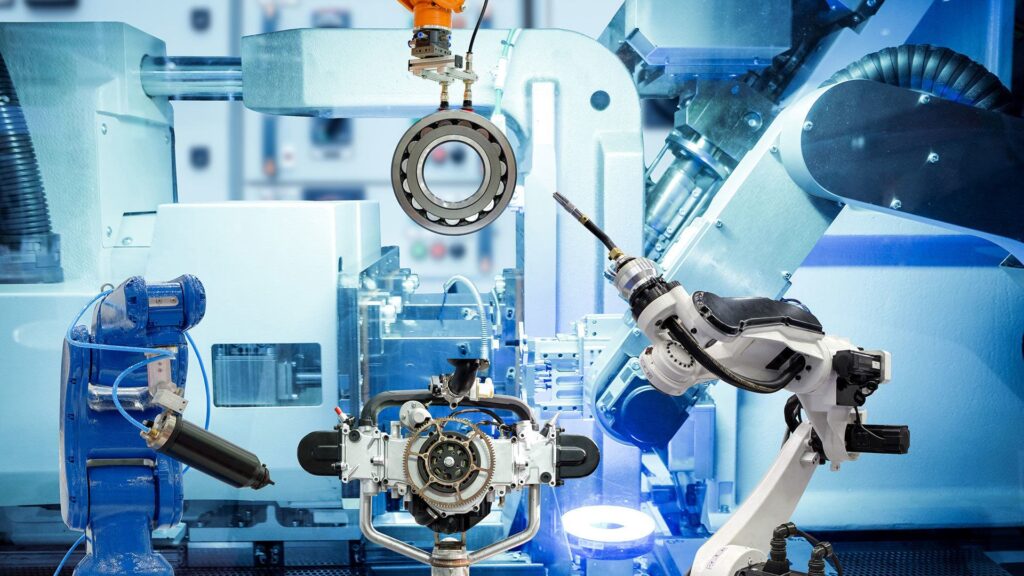6 Ways Technology Will Change The Meaning Of Intelligence

From smartphones to chatbots, technology has taken over the world, and every aspect of it, even intelligence, is becoming digital. Almost every device and service humans utilize involves artificial intelligence, IoT, or other forms of technology. The power behind AI is growing. Thanks to the degree of information that computers can now accumulate about your preferences, purchases, and developments consistently. What’s more, experts in artificial intelligence research use all that information to train machines to learn and predict what you need—or hate.
Learn about the ways how technology will change the meaning of intelligence.
1. Transforming Medical Care

Medical care has since a long time ago experienced soaring clinical expenses and wasteful processes. Artificial intelligence is giving the defamed business a virtual makeover.
Artificial intelligence is quickly turning out to be an essential facet of the medical services industry. A considerable measure of patient medical care data has been collected as of late. With AI, that data can be arranged, coordinated, and deciphered, helping doctors and attendants improve and choose more effective patient consideration choices.
The medical services industry can likewise use artificial intelligence for diagnostics, for instance, to identify minor variations inside patients’ health data, collate them with comparative patients, and improve imaging diagnostics in radiology and pathology. Artificial intelligence can likewise help recognize possible pandemics early and track the rate of illnesses to help forestall or contain their spread. To learn in-depth about AI concepts, you can get enrolled in AI Certification by Intellipaat and learn much about its algorithmic structures.
2. Transforming The Relationship Between Humans and Machines

Leaders across businesses depend on the association between human and artificial intelligence. Artificial intelligence could measure, break down and assess the massive amount of information produced today, permitting people to concentrate on inventive undeniable-level reasoning.
Organizations are likewise thinking about how it might affect their labor force. How might AI influence workers? Will it change the sorts of skills you need? How might people and machines cooperate? Do you need to pair your best individuals with the innovation so they can gain from them? Or on the other hand, do you have the technology to handle specific assignments while workers center around others?
People can take an IQ test to measure their intelligence. Most companies find it vital when they recruit employees for crucial jobs that need high IQ. It is all possible due to technology evolving. Now, humans do not have to take the test by themselves, a machine does it, and you trust the device. Therefore, if you want to take an IQ test, visit https://iq-global-test.com/.
3. Technology Has Changed The Face Of Trade

Retail and E-business is maybe the only space where the use of AI is seen the most. Being a competitive space, retail associations consistently search for methods to discover patterns in consumer behavior and, in this way, adjust their procedure to outfox their rivals.
Artificial intelligence has indeed tracked down a sweet spot in the whole plan of things. The product suggestions on your Amazon account are only an ongoing use of complex AI calculations to figure out which items you are bound to purchase.
Carrying out AI into online businesses empowers organizations to create client connections. Artificial intelligence-driven calculations customize the user experience, increment deals, and assemble reliable and long-lasting relationships.
Artificial intelligence applications are likewise progressively being used to upgrade the user experience. For instance, many chatbots accessible on online business sites are fueled by AI and modified to give quick answers to a range of general client inquiries.
4. Technology In The Education Sector

A tremendous scope of various advancements are now showing up on the education market, for example, augmented reality headsets, virtual reality simulation, voice-enacted assistants, and customized mentoring frameworks. These advances can empower the education sector to decipher student data suitably and effectively. Or predominantly, it will help instructors.
Research projects like MaTHiSiS investigate how educational platforms can give each student a bespoke, personalized learning experience adjusted to their necessities, whatever their setting or gadget.
Artificial intelligence frameworks like CenturyTech and Alelo use a lot of data and AI to render customized results. Such platforms also help in figuring out how to provide personalized learning to students and feedback for instructors.
5. Robots Are The Future

With expanding advancements in the field of AI, robots are getting more productive in performing assignments that prior were excessively mind-boggling.
Complete mechanization is frequently acknowledged distinctly with the help of AI, where the framework can’t simply play out the predetermined assignment yet, in addition, screen, review, and improve them with no human intervention.
Artificial intelligence in advanced mechanics assists the robots with learning the processes and playing out the tasks with complete independence, with no human mediation. It is because robots are intended to perform dreary assignments with ultimate exactness and speed.
Artificial intelligence has been presenting adaptability and learning capacities in previous unbending utilization of robots.
These advantages are required to support the market development.
6. Technology And Finance Industry

Artificial intelligence and the finance sector are a match made in paradise. The finance area depends on exactness, continuous detailing, and handling high volumes of quantitative information to decide. It is one of the most crucial fields where machines dominate. This sector needs the constant help of a brilliant mind.
As the business observes AI’s proficiency and precision, it also helps firms quickly execute robotization, chatbots, insight, algorithmic exchanging, and AI into financial processes.
Digital advisors use AI and calculations to filter data in the business sectors and anticipate the best stock or portfolio amount based on market trends and inclinations. Wealth management firms are turning towards Robo-advisors, not just because it saves both the organization and customer time and cash but also guarantees precision. It additionally creates some great returns.
Conclusion
From the above list, the adoption of technology is scurrying across every sector to computerize numerous processes that were prior executed physically.
While this will prompt the end of labor from these sectors, it will also work with the adaptability of HR to higher skills. As a result, it is a mutually advantageous plan for both industry and labor.




